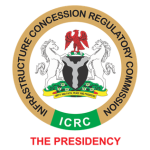FG to impose levy on companies employing expatriates
… Concessions Snake Island Terminal
… Abuja, Kano airports concession goes to consortium
The federal government has decided to introduce the Expatriate Employment Levy (EEL).
It will be executed as a Public Private Project designed project to boost revenue generation for the country through imposition of levy on companies that employ expatriates.
The decision and green light to execute the project was given at the last Federal Executive Council meeting in Abuja on Wednesday.
Other than make money for the government, the Expatriate Employment Levy (EEL) “aims to discourage employers from hiring expatriates for jobs that could easily be done by Nigerians”.
To ensure that the government makes the most revenue from the project, the Infrastructure Concession Regulatory Commission (ICRC) said “the project will employ a robust ICT System for the collection of Expatriate Employment Levy’.
The EEL project was approved at a cost of $95,024,000, with Messrs Air Wave Ltd as the concessionaire and the government has set a revenue target of $13,391,529,119 ($13.4 billion) with a concession duration of 20 years.
At the same FEC meeting, the federal government approved the Snake Island Terminal. It is a multipurpose port facility located within the Snake Island Integrated Free Zone (SIIFZ) and will operate within the limits of Apapa and Tin Can Ports.
The Infrastructure Concession Regulatory Commission (ICRC) is the regulating agency for the project which will be executed “at a cost of $974.19 million for a 45-year term, with Messrs Nigerdock and Snake Island Integrated Free Zone (SIIFZ) as the concessionaire”.
It was declared as a Port Development and Free Trade Zone by the Presidency in 2005. The facility was further declared as a Customs Wharf under the Customs and Excise Management Act as an international point of entry for ships engaged in maritime commercial trade in 2019.
The proposed Snake Island Terminal will be developed as a green port, comprising of three terminals with 2.5km of quay, six ship berths, none barge berths, 6.0 to 16.0 meters of draft and an overall area of 85 hectares.
The ICRC said “the approval will bring about expansion of port infrastructure; improve revenue to the government through surging cargo volumes; reduce burden on roads; provide quality job opportunities for Nigerians and reduce cargo diversion to neighbouring countries. A total projected revenue to the government is $5.23 billion.
The federal government has also approved the concessioning of the Passenger and Cargo Terminals of Nnamdi Azikiwe International Cargo Airport Abuja (NAIA) and Mallam Aminu Kano International Airport Kano.
The concessionaire will Rehabilitate/Build, Operate and Transfer the Cargo and Passenger Terminals of the Nnamdi Azikiwe International Cargo Airport Abuja (NAIA) and Mallam Aminu Kano International Airport Kano.
According to the ICRC, “the NAIA will be executed at a cost of $86 million, operated for a 20-year concession, during which time the concessionaire will charge facility users appropriate tolls and fees to recover its total investment on the project.
“The project will be executed by Corporacion America Mota Engil Consortium, at a cost of $86.427 million with total expected revenue put at $1,768,164,000.
For the Kano International Airport, the concession was approved at a cost of $17.48 million, to be executed by Corporacion America Mota Engil Consortium for a 30-year term and a projected revenue of $596 million.




